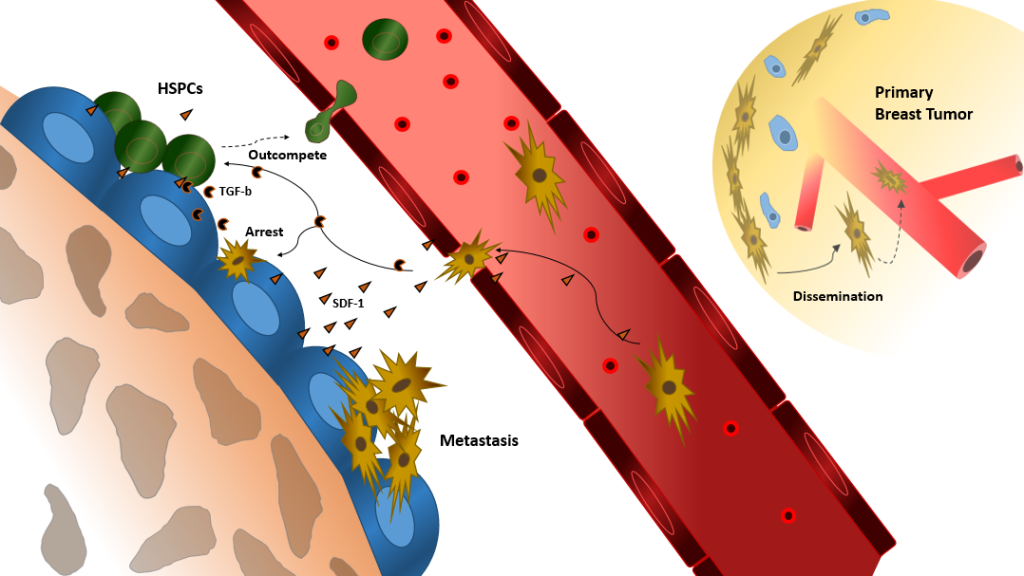Projects
Within the DFG SFB655 “cells into tissues” we investigate the composition of the hematopoietic stem cell niche. Therefore, we examine hematopoietic stem and progenitor cell (HSPCs) homeostasis, mobilisation and homing in cocultures with mesenchymal stromal cells (MSCs) as well as decellularized extracellular matrices (ECM) derived from MSC. In cooperation with Carsten Werner group (Max Bergman Center) the project aims at the development of three-dimensional polymer culture systems to exogenously control expansion and differentiation of human HSPC ex vivo.
Modulation of the hematopoietic stem cell niche by micrometastases
Within this project we investigate mechanisms involved in the crosstalk between disseminated tumor cells, HSPCs and MSCs using different in-vitro and in-vivo approaches. The aim is to define the impact of tumor cells on the homeostasis within the bone marrow microenvironment which may identify potential targets for therapeutic intervention.
Chemical screening for expansion of HSPC’s
Leukemic and solid tumor xenografts in the embryonic and adult zebrafish
As part of the CRTD Seed Grant “Chemical screen for regulators of hematopoietic stem and progenitor cell activity”, our lab research focus is to uncover the molecular targets driving the expansion and maintenance of HSPC’s. We have undertaken chemical screening of molecular targets using existing transgenic zebrafish models. Utilizing insights gained from various studies on zebrafish models of cancer, we are now extending our focus to study different human malignancies on zebrafish models.
Hematopoietic stem and progenitor cells (HSPCs) are transplanted after chemotherapy to reconstitute all blood cells. Unfortunately, analysis of their surface protein expression by standard flow cytometry does not yield functional information. We propose the exploration of mechanical phenotype as a potentially superior label-free way to identify and sort HSPCs for research and clinical application.
Preclinical evaluation of immunotherapeutic strategies
Immunoediting has been recognized as a hallmark of cancer and therapeutic strategies targeting immunoevasive mechanisms have been substantially improved outcome in some malignancies. We are interested in pre-clinical evaluation of novel immunotherapeutic approaches using in-vitro and in-vivo models. One emphasis is the combination of conventional therapeutic strategies e.g. radiotherapy with immunotherapeutic approaches to enhance therapeutic efficacy.




